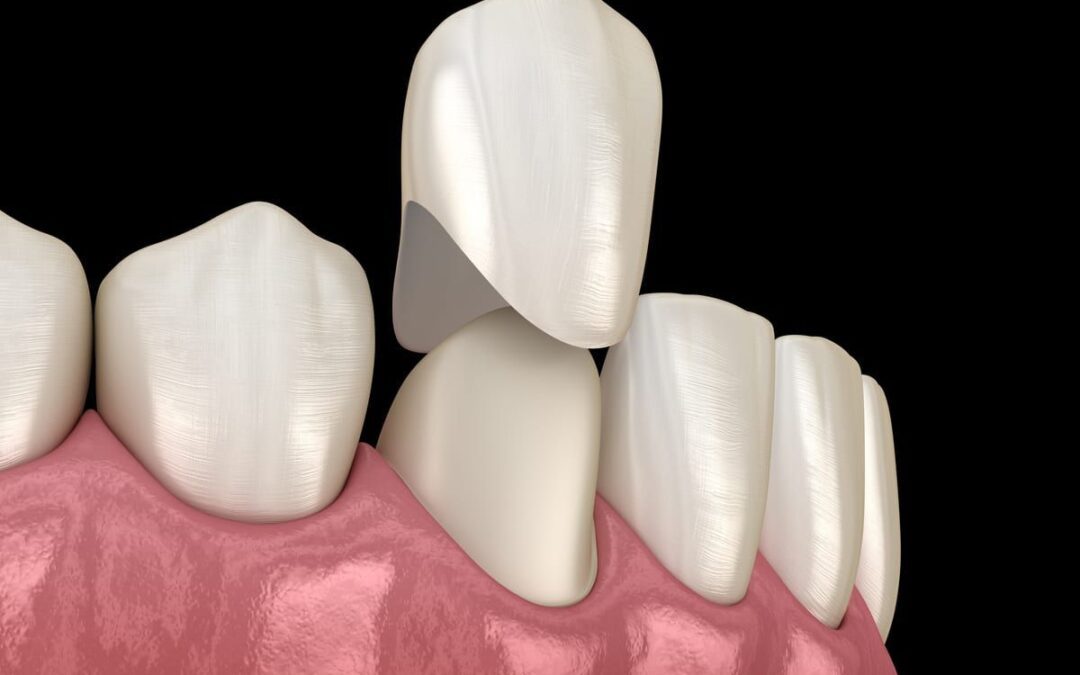Understanding Porcelain Crowns: A Comprehensive Guide for Patients in the UK

In the realm of modern dentistry, porcelain crowns have become a popular solution for various dental issues, ranging from cosmetic enhancements to structural restoration. Offering both aesthetic appeal and functional durability, porcelain crowns have revolutionized the way dentists address dental problems, providing patients with long-lasting solutions to restore their smiles.
In the United Kingdom, where dental care is highly advanced and readily accessible, porcelain crowns have become a cornerstone of restorative dentistry. From London to Edinburgh, patients have embraced this innovative treatment option for its ability to enhance both the appearance and functionality of their teeth. Let’s delve deeper into what porcelain crowns entail, their benefits, the procedure involved, and what patients in the UK can expect.
What are Porcelain Crowns?
Porcelain crowns, also known as dental caps, are custom-made prosthetic devices that cover the entire visible surface of a tooth. Crafted from high-quality dental porcelain, these crowns are meticulously designed to replicate the natural appearance of teeth, blending seamlessly with the surrounding dentition. They are versatile and can be used for various purposes, including:
Restoring Damaged Teeth: Porcelain crowns are often used to restore teeth that are severely decayed, fractured, or otherwise compromised. By encasing the damaged tooth entirely, a porcelain crown provides strength, stability, and protection, preventing further deterioration.
Cosmetic Enhancements: Beyond their functional benefits, porcelain crowns are also prized for their aesthetic appeal. They can be used to improve the appearance of teeth affected by stains, discoloration, irregular shape, or size discrepancies, creating a harmonious and natural-looking smile.
Supporting Dental Prosthetics: Porcelain crowns serve as vital components in various dental prosthetic treatments. They are commonly used to anchor dental bridges, which replace missing teeth, and to cover dental implants, effectively restoring both function and aesthetics.
Advantages of Porcelain Crowns
The popularity of porcelain crowns stems from the numerous advantages they offer, making them a preferred choice for both patients and dentists alike. Some key benefits include:
Natural Appearance: Porcelain crowns closely mimic the translucency, texture, and color of natural teeth, ensuring a seamless blend with the rest of the smile. This natural appearance enhances the overall aesthetic outcome of dental restorations.
Durability: Porcelain is a highly durable material, capable of withstanding the forces of biting and chewing. When properly cared for, porcelain crowns can last for many years, providing long-term functional restoration.
Biocompatibility: Dental porcelain is biocompatible, meaning it is well-tolerated by oral tissues and unlikely to cause allergic reactions or adverse effects. This makes porcelain crowns a safe and reliable option for most patients.
Stain Resistance: Porcelain is inherently resistant to stains and discoloration, unlike natural tooth enamel or other dental materials. This ensures that the crown maintains its aesthetic appeal over time, even in the face of dietary habits or lifestyle factors that may contribute to staining.
Conservation of Tooth Structure: Porcelain crowns require minimal alteration of the natural tooth structure compared to some alternative treatments. This conservative approach helps preserve as much healthy tooth tissue as possible while still achieving optimal restoration outcomes.
The Porcelain Crown Procedure
The process of receiving porcelain crowns typically involves several steps, beginning with an initial consultation and culminating in the placement of the final crown. Here’s an overview of what patients in the UK can expect during each stage:
Initial Consultation: During the first visit, the dentist will conduct a comprehensive examination of the affected tooth or teeth, including X-rays or other imaging studies as needed. This evaluation helps determine the suitability of porcelain crowns and allows the dentist to develop a customized treatment plan.
Tooth Preparation: If the tooth requires preparation to accommodate the crown, the dentist will administer local anesthesia to ensure the patient’s comfort. The tooth is then reshaped and reduced in size to create space for the crown. Impressions of the prepared tooth and surrounding teeth are taken to guide the fabrication of the custom crown.
Temporary Crown: While the permanent crown is being fabricated in a dental laboratory, a temporary crown may be placed over the prepared tooth to protect it and maintain aesthetics and function.
Final Crown Placement: Once the permanent crown is ready, typically within a few weeks, the patient returns to the dental office for its placement. The dentist carefully checks the fit, color, and aesthetics of the crown before permanently cementing it in place. Any necessary adjustments are made to ensure proper alignment and occlusion.
Post-Treatment Care: After the crown is placed, patients are advised to follow good oral hygiene practices, including regular brushing, flossing, and dental check-ups. With proper care and maintenance, porcelain crowns can provide years of reliable service.
Conclusion
Porcelain crowns have emerged as a leading solution for dental restoration and cosmetic enhancement, offering patients in the UK a reliable means of preserving and enhancing their smiles. With their natural appearance, durability, and versatility, porcelain crowns have transformed the landscape of modern dentistry, enabling patients to enjoy improved oral health and confidence in their smiles.
For individuals considering porcelain crowns as a treatment option, it is essential to consult with a qualified and experienced dentist who can assess their unique needs and provide personalized care. By understanding the benefits and procedure associated with porcelain crowns, patients can make informed decisions about their dental health and embark on a journey toward a brighter, healthier smile.











